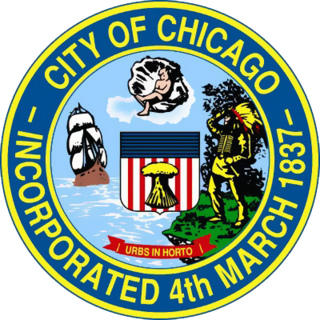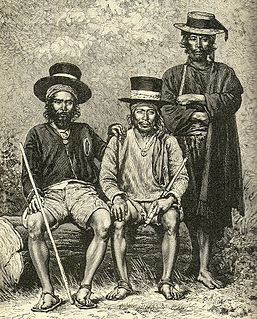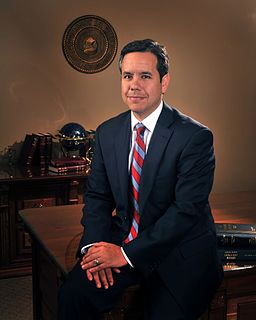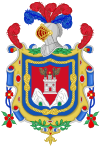In many countries, a mayor is the highest-ranking official in a municipal government such as that of a city or a town. Worldwide, there is a wide variance in local laws and customs regarding the powers and responsibilities of a mayor as well as the means by which a mayor is elected or otherwise mandated. Depending on the system chosen, a mayor may be the chief executive officer of the municipal government, may simply chair a multi-member governing body with little or no independent power, or may play a solely ceremonial role. A mayor's duties and responsibilities may be to appoint and oversee municipal managers and employees, provide basic governmental services to constituents, and execute the laws and ordinances passed by a municipal governing body. Options for selection of a mayor include direct election by the public, or selection by an elected governing council or board.

Quito is the capital of Ecuador and at an elevation of 2,850 m (9,350 ft) above sea level, it is the second highest official capital city in the world, and the closest to the equator. It is located in the Guayllabamba river basin, on the eastern slopes of Pichincha, an active stratovolcano in the Andes Mountains.

The mayor of Chicago is the chief executive of city government in Chicago, Illinois, the third-largest city in the United States. The mayor is responsible for the administration and management of various city departments, submits proposals and recommendations to the Chicago City Council, is active in the enforcement of the city's ordinances, submits the city's annual budget and appoints city officers, department commissioners or directors, and members of city boards and commissions.

Alcalde is the traditional Spanish municipal magistrate, who had both judicial and administrative functions. An alcalde was, in the absence of a corregidor, the presiding officer of the Castilian cabildo and judge of first instance of a town. Alcaldes were elected annually, without the right to reelection for two or three years, by the regidores of the municipal council. The office of the alcalde was signified by a staff of office, which they were to take with them when doing their business. A woman who holds the office is termed an Alcaldesa.

The mayor of Toronto is the chief executive officer of Toronto's municipal government and the head of its city council. The mayor is elected alongside city council every four years on the fourth Monday of October; there are no term limits. While in office, mayors are styled His/Her Worship.
Municipal elections in Barcelona are held every four years to elect the city council. The mayor is elected indirectly by the councillors on the first plenary session of the term.

The municipalities or municipios of El Salvador correspond to the second level administrative division in the Republic of El Salvador which divide its departments. El Salvador contains 262 municipalities.

José Guillermo Rodríguez Rodríguez is a Puerto Rican politician who serves as the Mayor of the city of Mayagüez, Puerto Rico. He was born in Mayagüez on October 10, 1956. He is a member of the Popular Democratic Party of Puerto Rico.

The Mayor of Ponce is the head of government of Ponce, Puerto Rico. The current mayor is Luis Irizarry Pabón.

Miguel Alberto Romero Lugo is a Puerto Rican lawyer, who is the current Mayor of San Juan. He was also Secretary of Labor and Human Resources of Puerto Rico (2009–2012) and former Chief of Staff of Puerto Rico during Governor Luis Fortuño's administration (2012–2013) and senator for the San Juan District (2017–2020).
The Mayor of Pichilemu is an elected politician who is the head of the executive branch of government of the commune of Pichilemu, Libertador General Bernardo O'Higgins Region, Chile. The mayor presides over the local city council, composed of six members, and serves as the civic representative of the commune. The mayor is popularly elected in a municipal election, by simple majority. The office is held for a four-year term without term limits.

The Pichilemu City Council is the legislative body of the City of Pichilemu. The council meets in Pichilemu City Hall.

José María Caro Martínez was a Chilean politician and civil servant. In May 1894, he was unanimously elected as the first mayor of the commune of Pichilemu, with Pedro Nolasco de Mira and Francisco Reyes made second and third magistrate respectively. Caro Martínez had previously served for several years as administrator or llavero of the San Antonio de Petrel hacienda and, between 1891 and 1892, was the Subdelegate of the 13th Subdelegation of San Fernando Department which comprised the district of Cáhuil.

Carlos José Ramón Echazarreta Iñiguez was the 27th and 30th Mayor of the commune of Pichilemu, office which he held between May 1963 and May 1967, and through the early months of the Augusto Pinochet military regime, between September and November 1973. In 1967 he was succeeded by Carlos Rojas Pavez, and in 1973 he was succeeded by Mario Urrutia Carrasco. Echazarreta also was a regidor of Pichilemu for several terms between 1959 and 1973.

Xavier García Albiol is a Spanish politician and member of the People's Party. He has been the president of the Badalona branch of his party since 1990, and he was the mayor of Badalona between 2011 and 2015, and again since 12 May 2020.

Municipal and regional elections were held in Peru on 7 October 2018. In the election, Peruvians voted for governors, vice governors and regional councilors at a regional level while at a municipal level, citizens voted for mayors and municipal councilors. Those elected took office 1 January 2019 and serve their term until 31 December 2022.

The City Council of Seville is the top-tier administrative and governing body (ayuntamiento) of the municipality of Seville, Spain. In terms of political structure, it consists of the invested Mayor of Seville, currently Juan Espadas, the Local Executive Board, the deputy mayors, and an elected 31-member deliberative Plenary (Pleno) with scrutiny powers. Each district in the municipality has its corresponding executive board.

Jorge Vicente Martín Muñoz Wells is a Peruvian lawyer and politician serving as mayor of Lima since 2019. He previously served as mayor of Miraflores from 2011 to 2018.

Jorge Homero Yunda Machado is an Ecuadorian politician, physician and radio broadcaster. He is a member of the PAIS Alliance. Yunda serves as the current Mayor of Quito since 2019. From 2017 until 2018, he served as a member of the National Assembly.

















